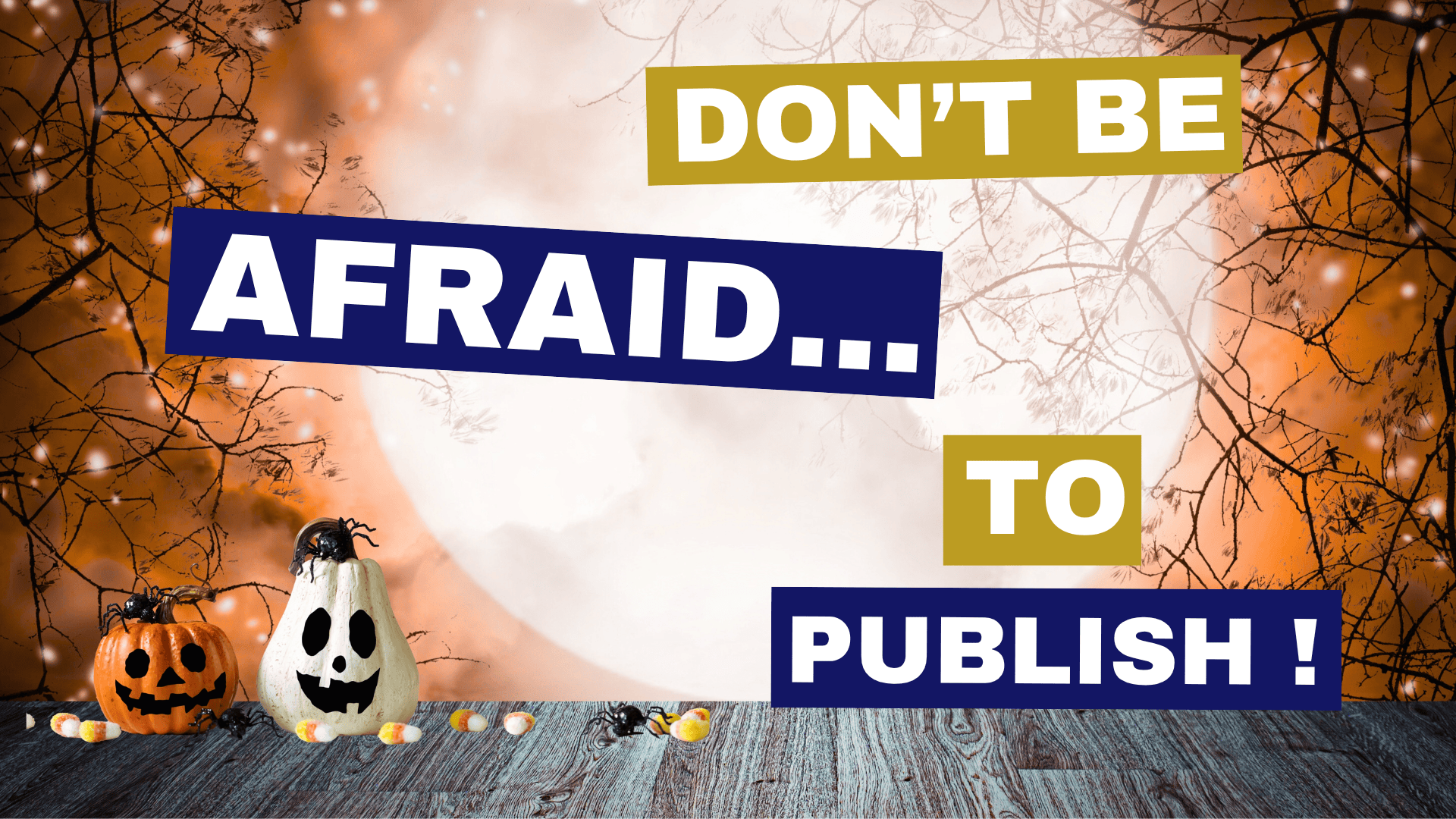Conquering the F-Word That Stops Authors: How to Overcome Fear and Get Your Book Published

As authors, we face a four-letter word that holds more power over our success than any rejection letter or negative review ever could.
That word? FEAR.
But here's what most people don't realize: fear doesn't always show up as that heart-pounding, palm-sweating terror we associate with public speaking or heights. For authors and publishers, fear is a shapeshifter. It disguises itself as procrastination, self-doubt, perfectionism, and even that innocent-sounding question: "Is my book good enough?"
The Hidden Faces of Author Fear
Fear in the publishing world wears many masks:
Doubt ("Will anyone actually read this?")
Procrastination ("I'll finish editing tomorrow...")
Peer pressure ("What will other authors think?")
Analysis paralysis ("Which publishing platform should I use?")
I recently had a discovery call with an author who asked me point-blank: "Do you think it's going to be worth it for me to publish this book?" This question revealed the core fear that haunts so many writers—the desperate need for external validation before taking the leap.
Why We Do What We Do (Or Don't Do)
Anthony Robbins nailed it when he said people only do things for two reasons: to gain pleasure or avoid pain. When it comes to publishing, we often get stuck in the "avoid pain" camp. We fear:
The pain of rejection
The pain of criticism
The pain of wasted effort
The pain of technical confusion
The Real Cost of Playing It Safe
When we let these fears control us, we're not just holding ourselves back—we're creating a ripple effect of lost opportunities:
We stifle our message before it has a chance to breathe
We miss potential opportunities that only come after publishing
We deny others the chance to benefit from our expertise and stories
The Fear Statistics Every Author Should Know
The numbers tell a sobering story:
A 2019 University of California Berkeley study found that fear of judgment is a major contributor to writer's block and stress
54% of debut authors experience mental health impacts following publication, often due to fear of wasted effort
In 2021 alone, 2.3 million books were independently published
That last statistic might trigger your competition fears, but here's the truth: those millions of books prove that regular people—people just like you—are conquering their fears and getting their work out there.
Building Your Anti-Fear Arsenal
1. Cultivate Internal Confidence
Read success stories obsessively. Not for comparison, but for inspiration. When you see hundreds of authors who've pushed through their fears, you realize you're not alone. Pick up books like Think and Grow Rich by Napoleon Hill, which shows how even industry titans like Henry Ford (who only had a sixth-grade education) battled self-doubt.
Program your mind with affirmations. We're bombarded with negative programming daily. Counter it by reading your goals and positive statements every morning. Your mind believes what you tell it repeatedly.
2. Test Market Acceptance Early
When my wife wrote her first novel in 2006, we didn't wait for perfection. We printed 40-50 spiral-bound copies at our local office store—about $20 each—and distributed them to friends, family, and new acquaintances at church. We asked for honest feedback.
The response? Overwhelming. People told us how the story impacted their lives and helped them learn forgiveness. That early validation cemented our belief that the market would accept the book. You can do the same with beta readers or advance review copies.
3. Demystify the Technical Side
Here's my litmus test for technical capability: If you can open an email, click a link to register for a workshop, and show up to that workshop online, you can learn everything needed to independently publish your book.
Yes, there are publishing platforms to navigate. Yes, there's Canva for cover design. Yes, there are email integrations and marketing tools. But none of these require a computer science degree—just patience and willingness to learn.
Your Fear Is Normal (But It Doesn't Have to Control You)
Remember, every published author has felt these same fears. The difference between published and unpublished authors isn't the absence of fear—it's the decision to act despite it.
Your message matters. Your story deserves to be told. And somewhere out there, someone needs to read exactly what you've written.
Your Action Steps to Conquer Publishing Fear
Create a Success Story File: This week, research and save 5-10 author success stories that inspire you. Read one each morning before you write.
Test Your Concept: Create a simple one-page summary of your book idea and share it with 10 people in your target audience. Ask for honest feedback about whether they'd read it.
Master One Tech Tool: Choose just one technical aspect of publishing (like setting up a Canva account or exploring Amazon KDP's interface) and spend 30 minutes learning it this week. Small wins build confidence.
Write Your Publishing Affirmation: Create a personal affirmation about your publishing journey (e.g., "My book will help thousands of people" or "I am capable of learning any tool I need"). Write it on a sticky note and place it where you'll see it daily.
Set a Micro-Deadline: Instead of focusing on "finishing the book," set a small, achievable deadline for this week—write 500 words, edit one chapter, or research three comparable titles. Movement defeats fear.
Remember: Fear whispers "what if you fail?" But courage whispers back "what if you fly?"
Your book is waiting. Your readers are waiting. The only question is: Will you let fear or faith write the next chapter of your author journey?
Register NOW for the 40 Day Publishing Weekly Workshop where we meet to discuss topics that matter most to today's authors. http://40dayworkshops.com